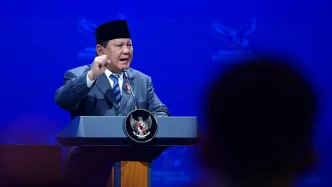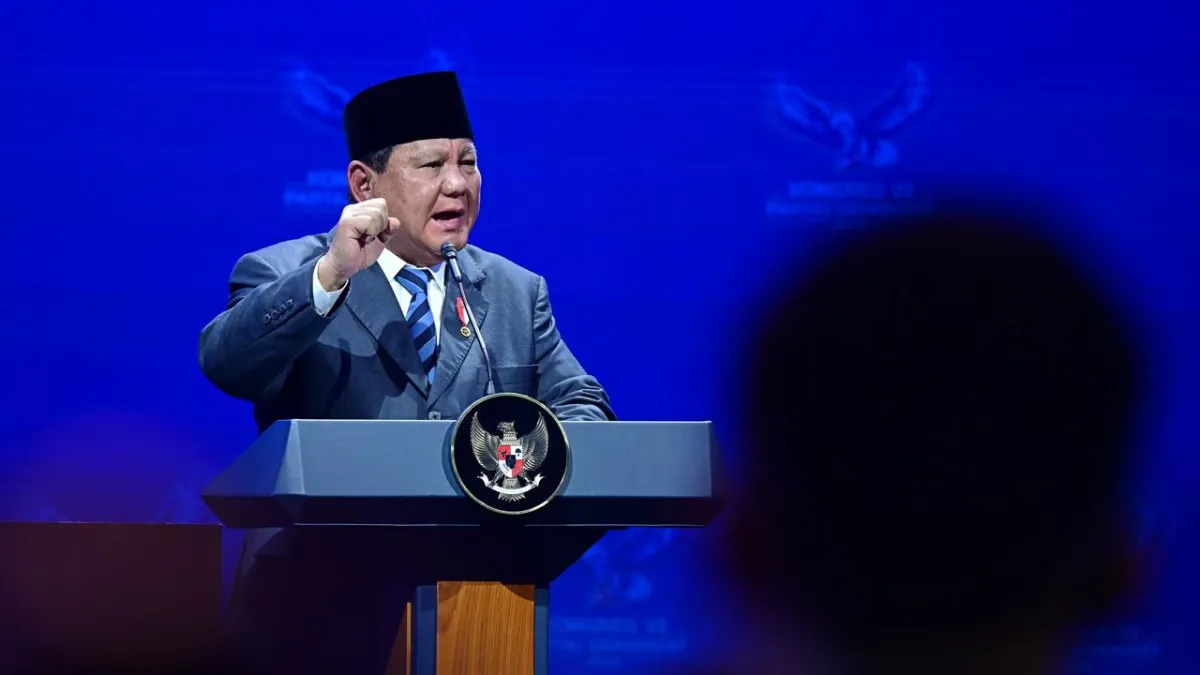Indonesia, Southeast Asia’s largest economy and a pivotal member of the Association of Southeast Asian Nations (ASEAN), is charting a new course in its foreign policy. Moving beyond the traditional focus on ASEAN centrality—a principle that positions the bloc as the primary driver of regional architecture—Jakarta is increasingly asserting its role on the global stage. This shift, driven by a desire to represent the interests of the Global South and address pressing international challenges, signals a significant evolution in Indonesia’s diplomatic strategy.
A Departure from ASEAN Centrality
For decades, ASEAN centrality has been the cornerstone of Indonesia’s foreign policy, emphasizing the bloc’s role as a neutral platform for dialogue and cooperation in the Asia-Pacific region. This principle has guided Jakarta’s approach to regional issues, ensuring that ASEAN remains at the heart of initiatives like the East Asia Summit and the ASEAN Regional Forum. However, as global dynamics shift—with rising geopolitical tensions, climate crises, and economic inequalities—Indonesia is reevaluating its reliance on this framework.
Recent policy statements from Indonesian officials highlight a growing recognition that ASEAN’s consensus-driven model can sometimes hinder swift and decisive action on global issues. While the bloc remains a vital platform for regional stability, Jakarta is now advocating for a more proactive stance that extends beyond Southeast Asia. This includes amplifying the voice of the Global South—a term referring to developing nations in Asia, Africa, and Latin America—in international forums such as the United Nations and the G20.
Indonesia’s chairmanship of ASEAN in 2023 provided a glimpse of this evolving approach. During its tenure, Jakarta pushed for stronger collective action on issues like the Myanmar crisis and climate change, while also fostering partnerships with non-ASEAN countries and organizations. This dual focus—strengthening regional cohesion while engaging globally—underscores Indonesia’s ambition to be a bridge between regional and international interests.
Championing the Global South
Central to Indonesia’s new foreign policy direction is its self-identification as a leader of the Global South. With a population of over 270 million and a rapidly growing economy, the country sees itself as uniquely positioned to advocate for the interests of developing nations. Issues such as equitable access to vaccines during the COVID-19 pandemic, debt relief for poorer countries, and climate financing have become focal points of Jakarta’s international advocacy.
Indonesia’s hosting of the G20 Summit in Bali in 2022 was a defining moment in this regard. The summit, held under the theme “Recover Together, Recover Stronger” prioritized discussions on global health architecture, sustainable energy transitions, and digital transformation—issues that resonate deeply with developing economies. By steering the G20 agenda toward these topics, Indonesia demonstrated its intent to shape global policies in ways that benefit not just ASEAN, but the broader Global South.
This commitment has continued in subsequent international engagements. Jakarta has actively participated in forums like the Non-Aligned Movement, where it has called for reforms to global governance structures to better reflect the needs of developing nations. This advocacy is not merely rhetorical; Indonesia has also pushed for tangible outcomes, such as increased funding for climate adaptation in vulnerable countries, many of which are in the Global South.
Navigating Geopolitical Challenges
Indonesia’s pivot beyond ASEAN centrality is not without challenges. The Indo-Pacific region is increasingly a theater of great power rivalry, with the United States and China vying for influence. Jakarta’s traditional non-aligned stance—rooted in the principle of “bebas aktif” (free and active)—remains a guiding tenet, but balancing relations with major powers while asserting global leadership is a delicate task.
For instance, Indonesia has deepened economic ties with China through the Belt and Road Initiative, particularly in infrastructure projects like the Jakarta-Bandung High-Speed Railway. Simultaneously, it has strengthened security cooperation with the United States and other Western partners through joint military exercises and maritime security agreements. This balancing act allows Indonesia to maintain strategic autonomy, but it also risks drawing criticism from both sides of the geopolitical divide if perceived as leaning too heavily in one direction.
Moreover, Indonesia’s expanded global role requires navigating complex regional dynamics within ASEAN itself. Smaller member states may view Jakarta’s global ambitions with skepticism, fearing a dilution of ASEAN centrality or a shift in focus away from regional priorities. To mitigate this, Indonesia has emphasized that its global engagement complements, rather than competes with, its commitment to ASEAN. Yet, maintaining this balance will be critical to preserving regional unity.
Climate and Economic Leadership
One area where Indonesia is making significant strides on the global stage is climate leadership. As one of the world’s largest emitters of greenhouse gases—largely due to deforestation and peatland fires—the country faces immense pressure to transition to sustainable practices. At the same time, it is highly vulnerable to climate impacts, with rising sea levels threatening coastal cities and extreme weather disrupting agriculture.
Jakarta has responded by positioning itself as a leader in climate diplomacy. At international conferences like COP26 and COP27, Indonesia has advocated for greater financial support from developed nations to help developing countries meet their climate goals. Domestically, the government has committed to achieving net-zero emissions by 2060, with initiatives like the Just Energy Transition Partnership (JETP)—a multi-billion-dollar agreement with international partners to accelerate the shift from coal to renewables.
Economically, Indonesia is also leveraging its global outreach to attract investment and foster trade. The country’s abundant natural resources, including nickel and palm oil, make it a key player in global supply chains. By engaging with international partners outside the ASEAN framework, Jakarta aims to diversify its economic partnerships and reduce reliance on any single market. This approach not only bolsters Indonesia’s economic resilience but also enhances its leverage in global trade negotiations.
Domestic Implications of a Global Focus
While Indonesia’s global ambitions are largely outward-facing, they carry significant domestic implications. Public support for a more assertive foreign policy is mixed; some Indonesians view it as a source of national pride, while others question whether resources spent on international initiatives might be better directed toward pressing domestic challenges like poverty, infrastructure deficits, and education.
President Joko Widodo, commonly known as Jokowi, has framed Indonesia’s global role as a means of securing national interests. His administration argues that international leadership—whether on climate, trade, or health—brings tangible benefits to Indonesians, such as foreign investment, technology transfers, and enhanced security. However, as the 2024 presidential election approaches, candidates will likely face scrutiny over whether this global focus aligns with the immediate needs of the population.
Additionally, Indonesia’s push for global influence requires strengthening its diplomatic capacity. This includes training a new generation of diplomats skilled in navigating complex international negotiations and building institutions capable of sustaining long-term global engagement. Such efforts, while resource-intensive, are essential to ensuring that Indonesia’s ambitions are matched by its capabilities.
The Road Ahead
As Indonesia steps beyond the confines of ASEAN centrality, it faces both unprecedented opportunities and formidable challenges. Its ability to represent the Global South, address global crises like climate change, and navigate geopolitical rivalries will shape not only its own future but also the trajectory of Southeast Asia as a whole. While ASEAN remains a foundational pillar of Indonesia’s foreign policy, Jakarta’s evolving strategy suggests a broader vision—one where regional leadership is a stepping stone to global influence.
The success of this approach is far from guaranteed. It will depend on Indonesia’s capacity to balance regional commitments with global aspirations, maintain strategic autonomy amid great power competition, and secure domestic support for its international endeavors. As Jakarta charts this new path, the world will be watching to see whether Indonesia can emerge as a true global player, reshaping the international order in favor of equity and cooperation.
















